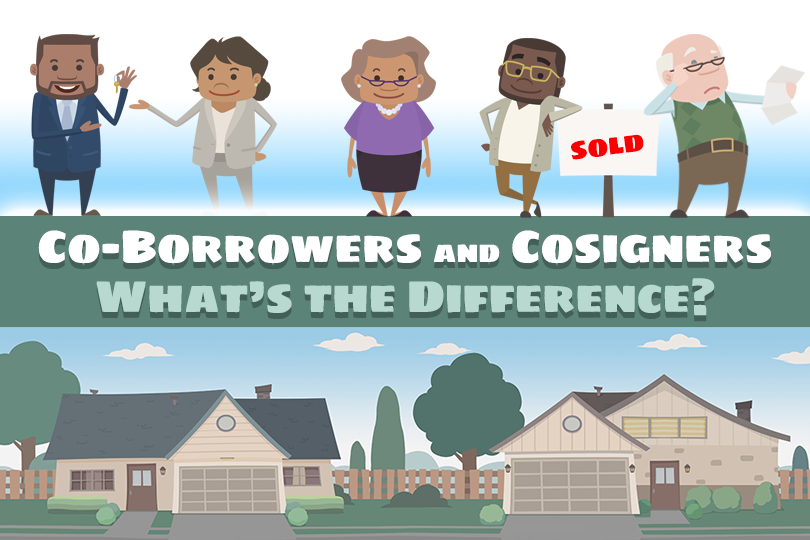Similarities and Differences Between Co-Borrowers and Cosigners
September 2, 2023
What Is a Co-Borrower?
A co-borrower is someone who is listed on the mortgage loan application alongside the primary borrower. They share equal responsibility for repaying the loan and are typically co-owners of the property being financed. During the loan application process they're required to by provide their income details, credit history, and other financial information to help meet the lender's qualification requirements.
Co-borrowers have a legal stake in the property and may have their names on the title and the mortgage documents. FHA loans allow for co-borrowers, including spouses or family members, to combine their incomes and credit profiles to qualify for a larger loan amount or to meet the lender's requirements.
What is a Cosigner?
A cosigner is not typically listed on the mortgage application but can be used in some cases to help the primary borrower qualify for an FHA loan. They're primary role is to provide additional assurance to the lender that the loan will be repaid, and do this by agreeing to assume responsibility for the loan if the primary borrower defaults.
Unlike co-borrowers, cosigners do not have a legal stake in the property being purchased. They don't own or have any rights to the property.
FHA loans are primarily underwritten based on the creditworthiness and financial situation of the primary borrower. In most cases, FHA loans require the borrower to meet the qualifications without the use of a cosigner.
The Bottom Line
The key difference is that a co-borrower is directly involved in the mortgage application, shares equal responsibility for the loan, and has a legal stake in the property, while a cosigner is not directly listed on the application, does not have ownership rights in the property, and provides additional assurance to the lender without being financially involved to the same extent as a co-borrower.
FHA loans are more commonly associated with co-borrowers rather than cosigners, but lending guidelines can vary if a family member is involved. Check with the specific lender for their policies regarding co-borrowers and cosigners on FHA loans.

FHA Loan Articles
April 30, 2025 In a previous post, we discussed why FHA borrowers should carefully consider whether paying for discount points truly serves their best interests, focusing on factors like short-term homeownership, opportunity cost, FHA mortgage insurance, and the prevailing interest rate environment. Discount points are an option for borrowers willing to pay a fee to lower the interest rate by a set amount. This is not right for all borrowers, and you don't want to pay for points you won't benefit from during the loan term.
April 29, 2025Are you considering buying a home with an FHA loan? You'll likely talk to your participating lender about FHA loan "discount points" – fees you pay upfront for a lower interest rate on your mortgage. The idea behind discount points is a straightforward exchange: you spend money today to reduce your interest rate. Typically, one point equals one percent of your total FHA loan. In return, your interest rate might decrease by an amount you and the lender agree upon.
April 28, 2025Home loans have various expenses that aren't apparent to a new borrower until much later in the process. What do you need to consider when making your home loan budget? It might not be complete without addressing some of the issues we cover here.
April 23, 2025 While the prospect of lower interest rates or more favorable loan terms can be enticing, there are situations where waiting is the better option. Refinancing without carefully considering your current financial circumstances is never a good idea, but careful planning in the current financial environment is even more important.
April 22, 2025First-time home buyers worry about loan approval, but there are important steps to take to increase the likelihood that the lender will approve their application for the loan or pre-approval. What do you need to know before you choose a lender?







